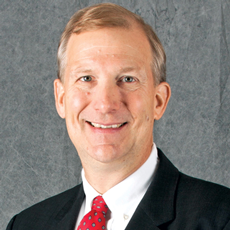
Bet you always thought it would be cool to be able to say you lived through some history-making moments, eh? This week might have changed some views on that, I suspect.
For as we’re seeing from the Ukraine to the halls of U.S. skilled nursing facilities, history-defining moments do not always come with “great” before them.
We’ll leave the carnage occurring in the Ukraine to more suitable political and world-view forums. But let’s consider the jaw-dropping occurrences for nursing homes this week in Washington.
On Monday, the administration issued notice that it is aiming for the most sweeping reform of nursing home regulations in perhaps 35 years. “Cracking down on unsafe nursing homes” is how the advance group prefaced the eight-page reform document that would send the industry into a frenzy.
Then Tuesday night, President Biden made at least recent history by devoting three sentences to nursing homes — about how they need to be reformed. It lasted all of 19 seconds, but the mere utterance was an anomaly, and more than enough to create bedlam.
Since Monday, providers have railed about the government’s “tone deaf” quest to impose staffing minimums and other stipulations during a terrible public health emergency. At the same time, consumer advocates, sensing some kind of underdog victory, have bellowed a collective, “It’s about time!”
What the administration’s 21-point plan might ultimately wind up as is far from determined. Some facets will require congressional approval. That’s a good thing for wary providers because members of Congress don’t often agree on much.
Also, most forecasters see a shift in the control of at least one chamber of Congress come November. That could further dilute the form of any initiatives. Unless Democrats and Republicans somehow come together to believe that senior care needs a unified reform push. Crazier things have happened.
For now, however, there are debates about what can be changed administratively, without congressional approval. With millions of dollars of potential fines and costs at stake, expect a very active lobbying season.
It’s clear, however, that as the effects of the COVID-19 pandemic begin to wane, the adrenaline to “fix” or avenge anything perceived as negative about it has picked up. For some, that means painting nursing home operators as perpetrators. The kind who would poison their own perilous workplaces, settings they returned to day after day, not knowing if they or their own family members would be put in danger because of it.
Put simply, when it comes to COVID-19, many providers feel like a live hand grenade was rolled into their tent, and now they’re being blamed for not having thick enough walls to contain the blast.
Reform is not a four-letter word
Nonetheless, long-term care operators should welcome many of the government’s proposed reforms.
Figuring out reasonable, practicable numbers for minimum staffing levels may allow reasonable people to disagree for years. But is there really any reason why facility owners — who are accepting millions of dollars of government funding — shouldn’t be more clearly known to the public?
And if the lousiest performers in the industry never manage to improve — again, while still freely absorbing healthy doses of government funding year after year — shouldn’t the profession’s own members hope for some housecleaning? If not to improve everyone’s reputation, then perhaps to make sure they’re not being played for hard-working suckers by less conscientious peers? The SFF (Special Focus Facility) list is not supposed to stand for Skillfully Fleecing Forever.
In some instances, it seems like the Centers for Medicare & Medicaid Services “ripped from the headlines” to devise proposals, like producers creating storylines for “Law & Order.” It was just a month ago, when a watchdog publicized how worst-performing nursing homes in New Jersey have stagnated at the bottom yet year after year collect hundreds of millions of dollars of government funding.
How about proposals that aim to shut down jurisdictional loopholes and keep a closer eye on questionable owner practices? You might think federal regulators were reacting directly to headlines about the former Skyline nursing home chain and its besieged former owner, Joseph Schwartz.
Seeing fewer headlines about topics like these could only help all involved. The same goes for decreasing the unnecessary use of antipsychotics, another target of federal reform efforts.
What also can be viewed as helpful are CMS’s plans to offer providers technical assistance and to prod states to provide better Medicaid payments, especially for experience and specialization.
There are certainly some onerous implications for providers in what the White House sprang on nursing home operators this week. But it should be recognized that not everything on the feds’ wish list is equally threatening. In addition, a lack of time, cooperation or political clout may lead to some less-desirable proposals’ undoing. While the proposed staffing minimums cast the biggest shadow, there are other parts that should be greeted with open arms.
Above all, providers may take solace in the fact that while momentous events may be unfolding around us, the history books have yet to be written.
James M. Berklan is McKnight’s Long-Term Care News Executive Editor.
Opinions expressed in McKnight’s columns are not necessarily those of McKnight’s.




